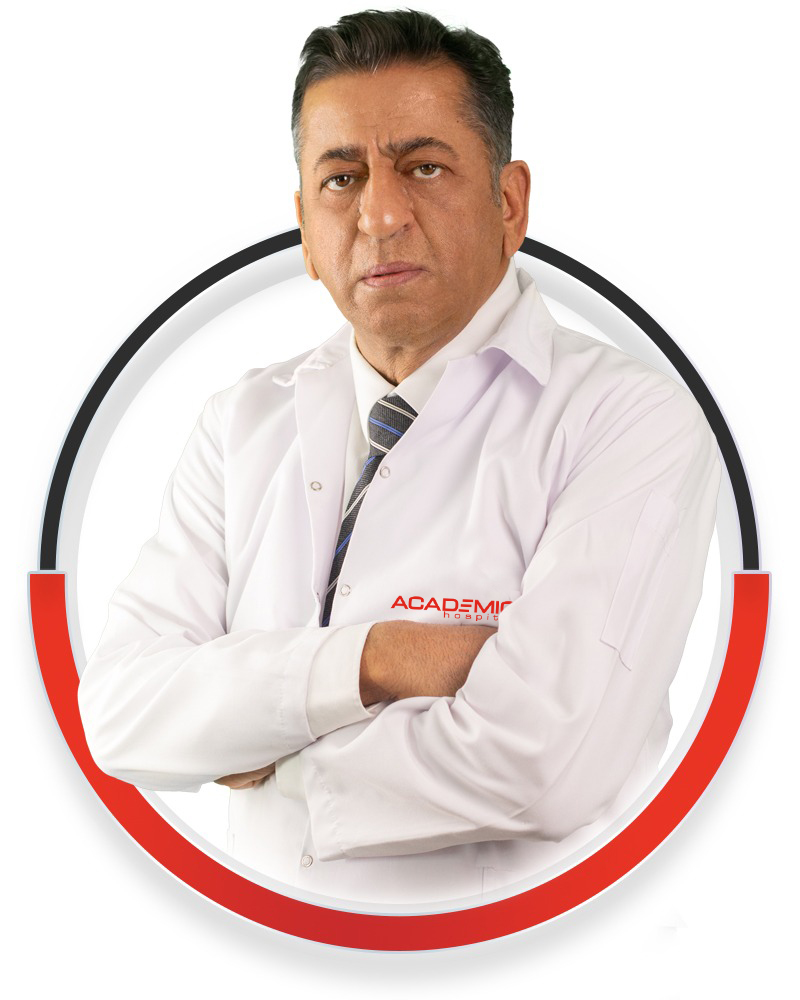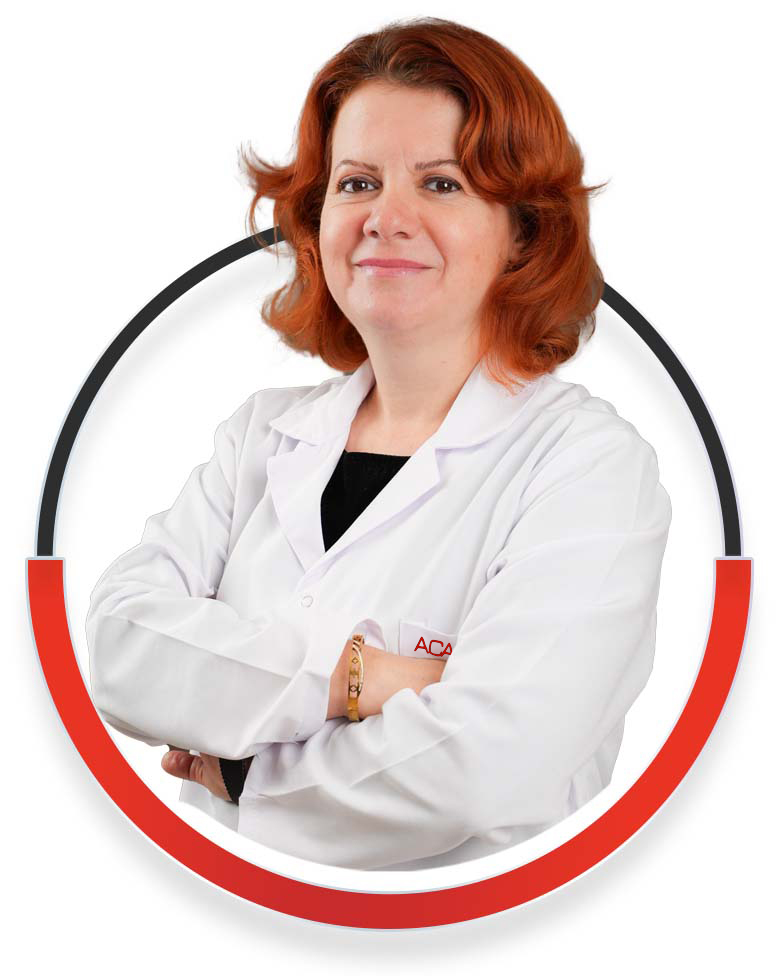What is gastroenterology?
Although gastroenterology is generally defined as the branch of medicine that deals with the digestive system, it actually has a very wide field of study. In addition to diseases of the esophagus, stomach, and intestines, the gastroenterology department diagnoses and treats liver, gallbladder, and pancreatic diseases. Physicians who specialize in this field of medicine are called gastroenterologists. Gastroenterologists are experts in diseases of the liver, gall bladder and ducts, pancreas, esophagus, stomach, and small and large intestines.
What diseases does gastroenterology cover?
Gastroenterology can be grouped into two main categories: The first group consists of diseases of the esophagus, stomach, small and large intestines, and anus, which is called the gastrointestinal tract. The second group is diseases of the liver, gall bladder and ducts and pancreas. Endoscopic methods are generally used in the diagnosis of these diseases. Gastroscopy is the process of examining the esophagus, stomach, and duodenum by entering from the mouth. Another procedure used to diagnose large intestine diseases is colonoscopy. In both examinations, the patient does not feel any discomfort.
Academic Hospital Department of Gastroenterology
Academic Hospital's Gastroenterology Department diagnoses and treats digestive tract diseases as well as liver, pancreas, and biliary tract diseases.
Endoscopic Examination with the Latest Technology
Endoscopy, in general, can be defined as the process of examining organs with the help of a camera. Contrary to popular belief, with endoscopic examinations, not only the stomach but also the esophagus and duodenum can be examined. Endoscopic examinations are now performed using thin, bendable tubes with a thin camera and light at the end, thanks to advances in technology. Images can be transferred to the monitor, and at the same time, a biopsy can be taken when necessary, polyps and stones in the bile duct can be removed, and some treatments (duct stenosis, etc.) can be performed as well.
Which endoscopic procedures are performed?
The endoscopic procedures performed in Academic Hospital's Gastroenterology Department using the latest technologies are the following:
Esophagoscopy
It is a procedure that is used to visualize the inner surface of the esophagus by endoscopic methods, by entering through the mouth, with the help of a camera, to take biopsies for diagnosis, and to perform some therapeutic applications.
Gastroscopy
Gastroscopy is an endoscopic procedure that examines the esophagus, stomach, and duodenum through the mouth.
Duodenoscopy
It is an examination of the duodenum with a camera.
Colonoscopy
which is the imaging process of the entire large intestine by entering through the anus under anesthesia.
Rectosigmoidoscopy:
The last 50-60 cm of the large intestine (rectum and colon) is examined with this procedure.
ERCP
ERCP procedure is performed for the diagnosis and treatment of bile duct diseases.
Diseases diagnosed and treated with ERCP • Choledoch calculi • Oddi sphincter dysfunctions • cholangitis (bile duct infection) • Pancreatitis • Bile duct injuries • Bile duct cysts of the liver • Periampullary region tumors (pancreatic head-papilla vateri-choledoch lower end) • ERCP treatment for the stones of the bile duct by exposing the main bile duct and intrahepatic branches • Chronic pancreatitis
Close Hepatitis Follow-Up at Academic Hospital
Hepatitis B and C, which can lead to liver cancer, are also diagnosed and treated At Academic Hospital's Gastroenterology Department
Early diagnosis
It is possible to minimize most of the diseases in the field of gastroenterology with lifestyle changes. Gaining a nutritional habit as recommended by the gastroenterology physician and fulfilling basic healthy life requirements such as regular exercise, quality sleep, and weight control both keep diseases under control and prevent new diseases. In addition to being careful about the symptoms of the disease, consulting a physician immediately when symptoms appear and regularly conducting recommended screening tests against cancer risk increase early diagnosis and treatment opportunities.
You may need to consult a gastroenterologist if you have these symptoms:
- Constipation
- Indigestion
- Diarrhea
- Vomiting
- Nausea
- Abdominal pain
- Burning sensation behind the chest (reflux symptom)
- Bitter water coming into the mouth (symptom of reflux)
- Heartburn
- Abdominal pain
- Unexplained weight loss
- Nutritional allergies (gluten, lactose intolerance, etc.)
Diseases Treated by Gastroenterology Departments
Stomach diseases
Diseases such as gastritis ulcers, reflux, gastric hernia, stomach cancer, gastric polyps, gastric hemorrhage, and helicobacter pylori therapy.
Esophageal diseases
Mainly reflux and swallowing difficulties, and varicose and stenosis treatments.
Diseases of the bowel (colon):
This group includes ulcerative colitis, Crohn's disease, diverticular disease, polyps, irritable bowel syndrome, and colon cancer.
Rectal diseases
It includes diseases such as hemorrhoids, anal fissure fractures in the anal area, fistulas, rectal cancers, and abscesses.
Gallbladder and Biliary Tract Diseases
Liver cirrhosis, liver abscesses, liver cancer, benign liver tumors, fatty liver, gallstones, gallbladder polyps, pancreatic cancer, hepatitis A, hepatitis B, hepatitis C, and hepatitis D are in this group.
Hepatitis vaccines should be done.
Hepatitis A is a liver infection caused by the transmission of the hepatitis A virus, commonly known as the "jaundice microbe." The disease is usually transmitted through the consumption of water and food contaminated with feces, which are factors in the disease. The virus proliferates after infecting the liver. Jaundice is seen in 10% of children under the age of 6, 40-50% between the ages of 6-14, and 70-80% over the age of 14. The hepatitis A vaccine, which has been actively used since 1995, has been recommended as a routine vaccine for children since November 2005. All children aged 12-23 months should be vaccinated in 2 doses, 6–12 months apart. The hepatitis B virus causes chronic hepatitis, cirrhosis, and liver cancer. Since September 1998, routine vaccination has been applied to all newborn babies in our country at the ages of zero, one, and six months.
Hepatitis C, one of the most important causes of liver cancer, is increasing rapidly today. Hepatitis B decreases due to the availability of a very safe vaccine, while hepatitis C increases rapidly. There are nearly 500,000 patients with hepatitis C in Turkey. Hepatitis C, which is more contagious than AIDS, progresses very insidiously, causing cirrhosis and cancer. Therefore, the assessment of these risk groups should be made separately.
Spastic Colon (Irritable Bowel Syndrome)
Spastic colon, i.e., irritable bowel syndrome, is a common bowel disease that causes changes in bowel habits, bloating, flatulence, and cramping abdominal pain. Diarrhea can be seen in some people, constipation in some people, and both conditions in others. IBS does not damage the intestines or cause more serious diseases such as cancer; in other words, it is not a precursor to cancer. In the treatment of irritable bowel syndrome, which does not have a standard treatment, diet, antidepressants, laxatives for constipation, fibrous foods to increase stool mass and density for diarrhea, antispasmodic drugs, and tranquilizers can be used with an appropriate diet and exercise.
Reasons for Esophageal Cancer Reflux
It occurs with the return of stomach contents to the esophagus and mouth. Barrett's esophagus may occur as a result of long-term reflux. Barrett's esophagus is formed by the passage of columnar cells instead of flat cells in the mucous membrane at the lower end of the esophagus. This condition occurs in a very small percentage of total reflux patients and carries a low risk of cancer. Every year, 0.5 percent of patients with Barrett's esophagus, or one in 200 patients, develop esophageal cancer.
After the diagnosis of reflux disease, the treatment plan will be adjusted as necessary in addition to the preventive regulations. Methods for treating reflux disease with non-surgical endoscopic interventions are developing day by day.
Colon cancer is preventable.
The primary goal of colon cancer screening is to reduce disease-related deaths. With regular screening tests, early cancers can be diagnosed and treated in a timely manner. In addition, pre-cancerous formations called adenomatous polyps can be detected and removed With regular screening and the removal of detected polyps, the risk of developing colorectal cancer can be reduced by up to 90 percent.
Those who have a family history of more than one colorectal cancer, especially in their first-degree relatives; those with a family history of cancer at an early age (before the age of 55); those with previous colorectal cancer or polyps; those over 50 years old; those who consume high-fat, red meat-weighted, fiber-poor foods; those who live sedentary lives and smoke; and those with inflammatory bowel disease should be screened for colorectal cancer regularly.
Non-Surgical Weight Loss
Method: Gastric Balloon
For those who want to get rid of obesity problems or excess weight but do not get results with diet and sports and who are also afraid of heavy surgery, "gastric balloon" is an effective solution method. The gastric balloon is applied using the endoscopic method without the need for surgery. It can be removed whenever desired and reapplied if desired.
Gastric balloon is a balloon made of silicone used for slimming purposes. It is a method whose main purpose is to make people lose weight and is irreversible because it is applied without surgery. The balloon can be removed at any time. Gastric balloon is an effective option if people with obesity problems between the ages of 18 and 60 have a Body Mass Index between 30 and 40 and if they are scared of surgery.







